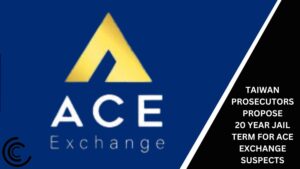key takeaways:
- As part of an Internal Revenue Service inquiry, a U.S. judge ordered cryptocurrency exchange Kraken to turn over some personal information about its users.
- Kraken will have to provide information and data such as names, date of birth, physical address, phone numbers and tax identification numbers.
The recent request by the Internal Revenue Service (IRS) for Kraken, a prominent cryptocurrency exchange, to disclose user information has ignited a debate about privacy and regulatory oversight.
The crypto community has expressed concerns about the potential erosion of privacy rights and the broader impact on the cryptocurrency ecosystem due to this development. It is noteworthy that Kraken had previously rejected the IRS’s request, which led to an application being made to the federal court in San Francisco in April.
According to the filing, Kraken has been mandated by the court to disclose specific details about its users who conducted cryptocurrency trades worth a minimum of $20,000 within a year-long timeframe.
The IRS is now conducting an investigation to identify the persons and their correct federal income tax responsibilities relating to cryptocurrency transactions for the fiscal years ending December 31, 2016, 2017, 2018, 2019, and 2020.
As per the court ruling, Kraken is obligated to provide the Internal Revenue Service (IRS) with various identifying information, including user names, dates of birth, tax identification numbers, residential addresses, and contact details.
The IRS indicated that it needed this information in order to examine potential tax evasion by Kraken’s users. The court petition was filed in the Northern District of California in February, shortly after Kraken reached a settlement with the Securities and Exchange Commission (SEC) over alleged securities law violations relating to its staking business.
While tax compliance is important, striking a balance between regulatory oversight and preserving user privacy is crucial. Collaborative approaches that foster dialogue between regulatory bodies and cryptocurrency exchanges are necessary.
Furthermore, in the case presided over by Judge Joseph Spero, certain requests made by the IRS were rejected. Although Kraken is required to provide blockchain addresses and transaction hashes that are already accessible to the exchange, the judge denied the IRS’s attempts to obtain employment information and details regarding the source of wealth from Kraken.
Judge Spero emphasized the importance of the summons being narrowly tailored and not exceeding what is necessary to fulfil its purpose. He concluded that some of the IRS’s requests were overly extensive and went beyond what was needed to identify the majority of users falling within the specified scope.










